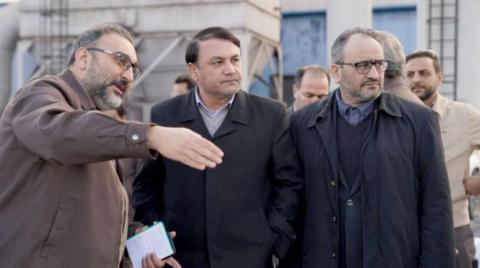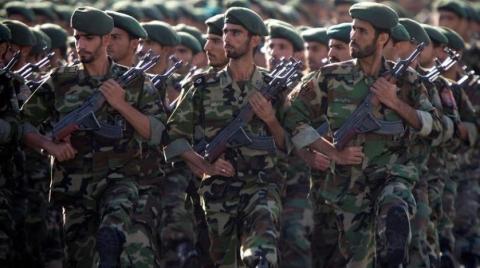
The Iranian Revolutionary Guard Corps intelligence unit announced it retrieved $560 million in revenues from frozen mining sector exports abroad.
The KhabarOnline news agency reported that the IRGC's public relations returned over 92 percent of the financial pledges to the Chadormalu Mining and Industrial Company in Yazd province, equivalent to $560 million.
The statement said that the intelligence service was tasked with returning the foreign currency resulting from Chadormalu's exports, noting that the operation was carried out by the "Unkinw Soldiers of Imam Zaman" in Yazd.
The statement did not disclose the country from which the intelligence services transferred the money or the date of the operation.
The Tehran Stock Exchange data, dating back to 2016, indicate that Chadormalu's resources amount to $2 billion annually.
Bank Sepah, which is linked to the military, and the National Steel Company are among the major investors in the group.
Last January, the mining and mineral industries' resources exceeded $9 billion.
The announcement would expose Chadormalu, one of the largest iron companies in the country, to the risk of US sanctions, given the sanctions facing the IRGC.
It could also deprive Iranian banks of financial transfers and use the Swift network after the Financial Action Task Force (FATF), which combats money laundry, said Iran would stay on the blacklist.
Iran is struggling to return tens of billions of its frozen assets while facing harsh US sanctions after former President Donald Trump withdrew from the nuclear deal.
Recently, the authorities have tried to curb a record decline in the exchange rate of the Iranian riyal against foreign currencies, especially the US dollar.
On March 10, a member of the Iranian-Iraqi Chamber of Commerce, Hamid Hosseini, said Iraq would return $500 million of Iranian funds frozen in its banks. He predicted that Iran's exports would exceed $9 billion annually.
Iran has frozen assets in Iraq from the proceeds of selling gas and electricity.
Hosseini said that Iraq's debts to Iran exceeded $10 billion and that it was recently decided to pay off some debts.
Information about frozen Iranian assets abroad is conflicting, and some unofficial estimates indicate that they range between $100 billion and $120 billion.
Iran is currently demanding the return of frozen assets from its oil sales in Japan and South Korea.
Tehran's holdings in South Korea are estimated at $7 billion, $1.6 billion in Japan, and $1.5 billion in Luxembourg. Last December, Iranian newspapers reported that Iran's frozen assets in China amounted to $30 billion.












